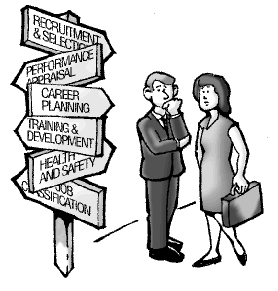
If Diversity is important, creating an inclusive environment to embrace and leverage diversity is critical for business success. Inclusion is a very personal sense of belonging. Inclusion refers to an environment where everyone in the organization gets an opportunity to contribute to the business success and is valued for the distinctive skills, experiences and perspectives he/she brings to the workplace. Diversity & Inclusion has become the way of doing business for IBM and many more companies now and is interwoven in their long term vision and strategy.
There are different reasons why Diversity & Inclusion is now being seen as a critical business issue.
- CSR and its linkage with Diversity & Inclusion
- Company values and culture
- Corporate image in society
Regulatory: Complying with law of the land/International laws
Business:
- Demographic changes
- Reputation, employer of choice
- Innovation - New products, services and markets
Diversity & Inclusion is one of the major engagement factors for employees. Talent is found in all population groups and is becoming a make or break corporate competency. Demographics of world are changing, customer profiles are changing, talent pools are changing and hence it is imperative in order to be successful, a global company mirrors the outside world in its employees as well as customers. Diverse employee base helps in understanding and addressing the divers customer group needs. There is plenty of research to support the hypothesis that Diversity drives innovation. Diverse teams take more time to settle in and perform compared to monolithic teams but the results produced by them are far more superior. Ofcourse, the role of leadership in managing diverse teams and leveraging the diversity cannot be over emphasized. How to develop inclusive leadership is another big topic in itself which merits detailed discussion.
Diversity & Inclusion is not about recruiting more women or disabled people or having a crèche facility or flexible working hours for working parents. It is about a process of culture and mindset change where everyone acknowledges and understands that diverse groups (be it employees or customers) have different needs and about respecting and fulfilling that need. As any culture change process, it also flows top down and hence top leadership commitment is vital for it to succeed. Diversity & Inclusion has to be approached as a culture change management process with
- Building leadership commitment
- Establishing an infrastructure to support implementation (resourcing)
- Communication with stakeholders
- Building it into existing processes like Performance objectives and rewards to create ownership and accountability
However, there is a paradox with this concept. If Diversity is about valuing and leveraging differences, what happens to the concept of a strong organizational culture? What happens to shared values, common leadership behaviors, a prototype IBM/Unilever/XYZ employee? Where to strike the balance between commonality and diversity both in their own ways leading to high engagement and sense of belonging and hence high productivity? Comments are welcome :)





1 comment:
Well said...and to answer your last question I believe that Diversity and Strong Organizational culture can easily go hand in hand, infact i strongly feel that diversity is extremely important for a stronger culture. Only when you have different cultures in your organization do you start appreciating them. You start realising the strengths and weaknesses of various individuals. You understand that different ideas come from varied individuals.
Also, organizations will never be able to have uniform organizational cultures throughout, since each unit has its own paradigms, its own unique set of values which are predominantly derived from the mother ship but there are also facets which come from the country/ culture it belongs to. Thats why IBM's culture is also referred to as Glocalized if i am not mistaken.
Post a Comment